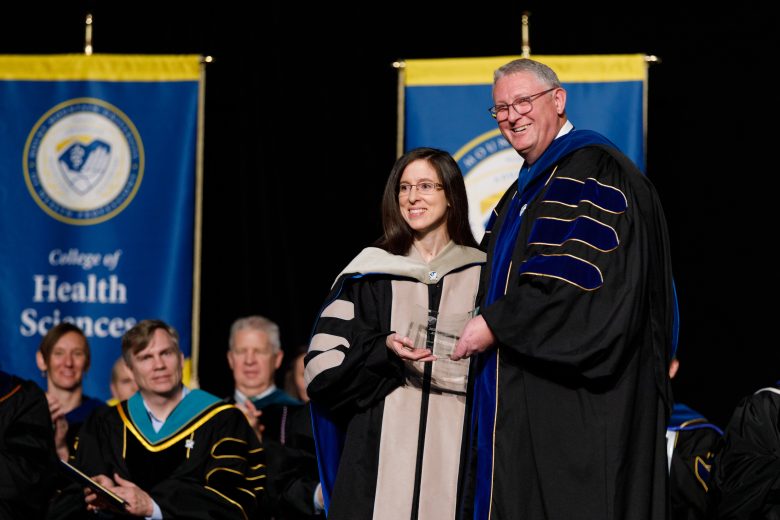Marie Pittman, PA-C, completed her dental hygiene degree from Utah Valley University (UVU) in 2008. After working as a dental hygienist for three years, she attended the physician assistant (PA) program at Idaho State University and graduated in 2013. Since becoming a PA, she worked in family practice and inpatient psychiatry, as well as taught at both the Master of Physician Assistant Studies (MPAS) program at Rocky Mountain University of Health Professions (RMUoHP) and the Utah Valley University Dental Hygiene School. Pittman loves education and the ability to influence patient wellness and prepare future clinicians. Her dual background gives her a unique perspective on oral health and overall health and wellness.
The Basics of Oral Care
The basics of oral care all help prevent issues: brushing for one to two minutes, flossing once a day, and using a fluoride mouth rinse. She says to visit the dentist at least once every six months and more often if you have periodontal disease. “Take the recommendations seriously. There are things you can do to have more prevention and prevent those large amounts of expensive fillings and crowns if you do take care of your teeth.”
The foods we eat also impact our oral health. Eating a lot of acidic and sugary foods are known to cause issues. “Bacteria loves sugar, which causes cavities and irritation in the mouth,” said Pittman. She recommends avoiding sucking on candies or mints throughout the day, especially if they aren’t sugar-free, and avoiding nail-biting.
The Importance of Flossing
Pittman explains that oral health and habits related to oral health make a big difference over time. Habits like brushing and flossing teeth are important to establish. “If you don’t get in between the teeth by flossing, then two of the five surfaces of the teeth aren’t getting cleaned,” Pittman said.
“If you go to bed without flossing, then food stuck in between the teeth will fester and build bacteria and then eat away the gum tissue and bone.” She adds that “periodontal disease can result in bone loss and deterioration of the support of structure in the mouth.”
But Pittman says it’s not always too late. “If you stop the inflammation and irritation before the bone loss, then you can get those gums to start to tighten back up. If you have a cavity starting to form, then you can reverse that with regular brushing, flossing, and a little bit of fluoride,” said Pittman. “There’s a lot of things you can do preventative wise.”
Taking Care of Your Child’s Teeth
When it comes to children, oral health and care are important, even for the teeth that eventually fall out. “You can get a cavity that will go down deep enough into the root that would cause issues with teeth coming in,” Pittman said.
One of the biggest issues that dentists and medical providers see is “baby bottle tooth decay,” which is where small children are given bottles before sleeping. Pittman recommends to “wipe out their mouth because the milk and sugar can sit on their teeth…and the sugars on the teeth let the bacteria go wild and cause decay.”
She adds, “We are very blessed to have the knowledge we have and how much research is going on. So we know the implications with oral health that years ago they didn’t know, even about periodontal disease. Treatments have gone leaps and bounds to save teeth.”
Listen to the full RMUpload episode here.
Additional Resources
Smiles for Life: A National Oral Health Curriculum
Search low-income dental services. For example, in the state of Utah, there are options with schools such as UVU, UCDH, SLCC, Weber State, Dixie State, and Roseman University.



